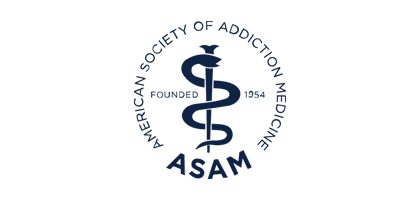News
‘Speaking the Same Language:’ First-of-Its-Kind Toolkit Offers Strategies and Tools for Strengthening Patient-Centered Addiction Care in the United States
Rockville, MD - The American Society of Addiction Medicine (ASAM) and Well Being Trust today unveiled a new resource designed to assist states looking to establish a strong, consistent framework, such as The ASAM Criteria®, for patient-centered, evidence-based addiction care. By helping providers, payers, and patients “speak the same language” when it comes to addiction care, this first-of-its-kind toolkit will facilitate continuity and consistency in substance use disorder (SUD) treatment delivery and coverage.
The free toolkit, “Speaking the Same Language: A Toolkit for Strengthening Patient-Centered Addiction Care in the United States,” was authored by Manatt Health Strategies, in collaboration with ASAM and Well Being Trust. As the United States grapples with a persistently high rate of SUD and historic levels of drug overdose deaths, the toolkit provides strategies and tools for those seeking to establish a common framework for the delivery and coverage of patient-centered, evidence-based addiction care. The toolkit includes a comprehensive list of strategies that interested states can pursue, an overview of existing implementation tools, examples from current state efforts, and model legislative, regulatory, and contractual language from which interested states can draw.
“Rooting addiction care delivery and coverage systems in a comprehensive framework ensures all stakeholders – from providers and payers to patients and families – are working together to save lives and promote recovery,” said Brian Hurley, MD, MBA, DFASAM, president-elect of ASAM. “Building a solid addiction treatment infrastructure includes creating integrated systems that help clinicians determine the appropriate level of care for their patients and facilitate that placement; expedite third-party authorization of payment for those appropriate levels of care, and educate patients about why the level of care is recommended for them. Systematic implementation of an evidence-based, comprehensive criteria, such as The ASAM Criteria, means all stakeholders can work hand-in hand toward assessment, treatment, and coverage decisions that meet patients’ needs.”
The ASAM Criteria is the most widely used and comprehensive set of guidelines for placement, continued stay, and transfer of patients with addiction and co-occurring conditions. As with other evidence-based standards and models for care, however, taking only selected parts of The ASAM Criteria or materially modifying it can undermine its effectiveness. The content presented in this toolkit reflects an array of strategies and tools to support more effective and comprehensive implementation of The ASAM Criteria.
“The first-of-its-kind toolkit we are rolling out today is a powerful, new resource that can help build upon existing transformation efforts to improve the consistency of clinical care delivery and coverage for treating patients with substance use disorders and co-occurring conditions,” said Benjamin F. Miller, PsyD, President of Well Being Trust. “This toolkit provides the necessary guidance and a real opportunity to strengthen patient-centered addiction care for all individuals with substance use disorders.”
Specifically, the educational toolkit is designed to:
- Elevate the need for adopting a common framework for addiction care, such as The ASAM Criteria, to ensure that everyone who provides, covers, or uses SUD services is “speaking the same language”;
- Educate stakeholders about the diverse strategies and tools that are available to support more effective and comprehensive implementation of The ASAM Criteria; and
- Empower those seeking to build sustainable, quality, and integrated addiction treatment and coverage systems that connect patients with SUD with the right care.
“America’s addiction and overdose crisis has sadly accelerated during the COVID-19 pandemic, further underscoring the need to bring additional standardization and consistency in the coverage and delivery of substance use disorder prevention and treatment. We sincerely hope that this toolkit will enhance the nation’s ongoing efforts to treat addiction and save lives,” concluded Dr. Hurley.
# # #
About the American Society of Addiction Medicine
The American Society of Addiction Medicine (ASAM), founded in 1954, is a professional medical society representing over 6,600 physicians, clinicians and associated professionals in the field of addiction medicine. ASAM is dedicated to increasing access and improving the quality of addiction treatment, educating physicians and the public, supporting research and prevention and promoting the appropriate role of physicians in the care of patients with addiction. For more information, visit www.ASAM.org.
About Well Being Trust
Well Being Trust is a national foundation dedicated to advancing a vision of a nation where everyone is well in mental, social and spiritual health. Launched by Providence St. Joseph Health in 2016 as an independent 501(c)(3) public charity with an initial seed endowment of $100 million plus an additional $30 million to be invested in California from 2017 to 2019, Well Being Trust is now investing in approaches that have the potential to model the way forward. Well Being Trust was created to advance clinical, community and cultural change…to transform the health of the nation and improve well-being for everyone.
Media Contact
Rebecca Reid
410-212-3843
rreid@schmidtpa.com


